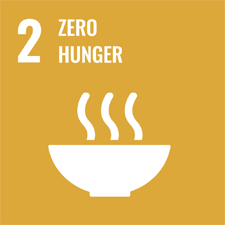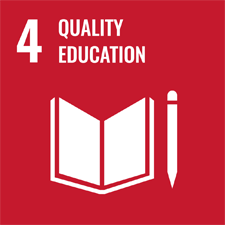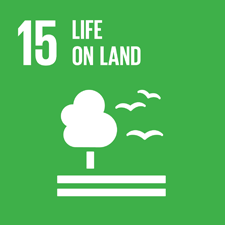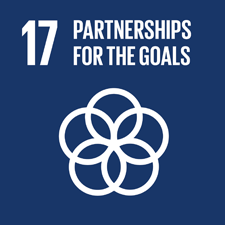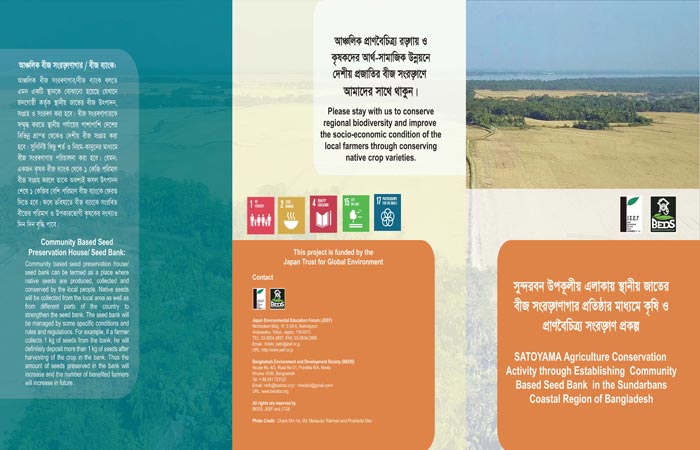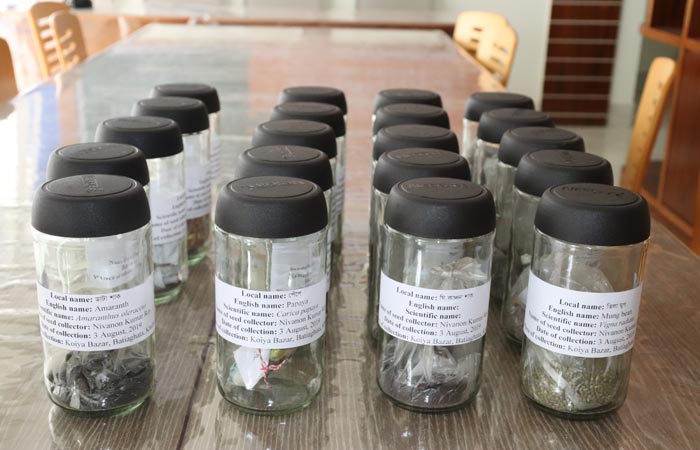Project Summary
Bangladesh is an agrarian country and agricultural sectors contribute 19.6% to the national GDP and 63% of the people directly or indirectly related to agriculture for their livelihood. The project area is located at Banishanta union of Dacope Sub district under Khulna district which is adjacent to the Sundarbans forest. Most of the people of this area depend on the resources of the Sundarbans and agriculture. Majority of them live below the poverty line. To meet the demand of growing population, the farmers are cultivating newly invented high yielding varieties (HYV) of crops instead of native varieties. But the disease resistances of HYV are less as compare to indigenous varieties and the hybrid crops need more chemical fertilizer and pesticides to get the desired high yield. Beside this, seeds from hybrids crops do not perform well to produce new crops in next year. As a result, the farmers become fully dependent on the companies for HYV seeds, chemical fertilizers, and insecticides. The businessmen are taking the opportunity of cultivating more HYV crops by the farmers and increasing the price of HYV seeds, fertilizers and insecticides. As a result, production cost is increasing day by day. On the other hand, the farmers are deprived of desired price of their agricultural products as the market management is under the control of middlemen. Now a days, the farmers have become helpless due to the evil cycle of company and middlemen. Rapid expansion of HYV crops cultivation process has become a threat to the regional biodiversity, environment and human health. Indiscriminate use of HYV, some of the native varieties are going to extinct.
Bangladesh Environment and Development Society and Japan Environmental Education Forum has taken a joint initiative to establish a community seed bank beside the initiatives of government to save the farmers and agriculture of Bangladesh from the grips of seed companies. This initiative will also help to conserve the local biodiversity and above all environment balance. Native crop varieties will be conserved and organic agriculture will restart by establishing a community seed bank which will play an effective role in conserving the local biodiversity. Under this project community based seed bank and native seed nursery have been established.
The overall goal of this project is to conserve native crop seeds and increase the environment-friendly agricultural production and the objective to achieve the goals are to motivate the farmers towards organic crop production using native varieties instead of hybrid seed; to conserve regional biodiversity; to save the farmers from the grips of seed companies and to reduce crop production cost and increase the income of the farmers. BEDS and JEEF are working with the local communities to overcome this situation by native seed conservation and environment friendly agricultural production.

